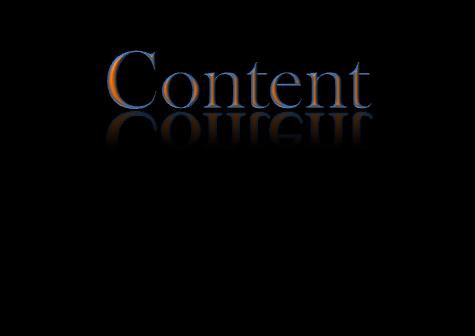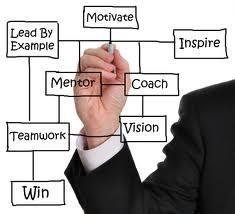Andrew Crudup Production Coordinator: Designer: Mirhez Publishing Information is correct at press time. Check www.mirhez.com/publishing for updates.
The Facilitator published monthly by Mirhez publishing a 168 Fairmount Ave. Signed Articles do not necessarily reflect the official company policy. 2011 Mirhez Publishing All rights reserved. Reproduction in part or whole without permission is prohibited. Editorial publishing and advertising offices: 168 Fairmount Avenue, Newark New Jersey 07083. Subscription and correspondences about
The goal of this magazine is to facilitate conversations using content aimed at fostering discussion about issues and their perceived impact on families and communities.
TWENTY SIX years ago I wound down a military career looking forward to a stint in corporate America leading teams tasked with building applications that would transform business
TWENTY THREE years ago I managed thirty contractors working across fortune five fortune 500 companies transforming business processes into productive collaborative cultures extracting value from this newly packaged resource called a “data warehouse”………
Eighteen years ago my youngest child is off to college. Retirement is in view and I can see light at the end of a 35 year tunnel. Finally, I will get to see this beautiful blue marble and sprint off into my golden years, proud of my accomplishments, financially set, comfortable, blessed with a great and wonderful family, thanking God for my great health and fortune.
Then ………….
Analyzing changes over the last decade, I realized my life needed some sprucing up if am to receive the harvest from the gifts God put in me. My biggest challenge would be courage in the midst of change. I had to learn not to be afraid of criticism and to embrace difference. Deciding I was too young for retirement and still possessed some desire to contribute and serve, reinventing myself was not only necessary but mandatory. Strengths that could contribute to this rework included my work experience, great intellect, health and business acumen. Weaknesses include perceived inability due to age, limited capital, lack of courage to engage and resources.
Given the environment, my best chance at success resides in the ability to reinvent myself demonstrating value for these times. The greatest product I have to offer is ingenuity and experience. Unlike outdated airplanes flown to the airplane retirement yard (bone yard) to watch the sunset, I am still too young to be put out to pasture. My motor works well, my accessories are still functioning and I can still ignite the afterburners when needed.
September 2008 saw Wall Street implode. Some of the biggest companies in America are in financial trouble and Congress LOSES ITS head as it attempts to stop the financial bleeding. Congressional members feud over abstract ideological concepts while the wealth of the middle class is sold off. Companies are laying off in massive numbers to preserve profit. In the same year Americans inaugurate the first African American president (yeah!) and there is an optimism that all will be good.
January 2010, a business division within the company where I’m working downsizes and is sold off; Finishing my third college degree in attempt to improve my value I decided to start a small technology consulting firm which I would dissolve a few years later TO go to work for the Department of Veterans Affairs..
My vision for retirement ONLY a couple of years earlier has gone BY the way of the dodo bird….
Today, winding down a career with the Department of Veterans Affairs (2nd government retirement) I find myself saying goodbye to my former life and deciding to embrace this new season, ONE filled with creative pursuits ALLOWING FOR SELF EXPRESSION .
This led me to Mirhez Publishing and the Facilitator Magazine. This is my attempt to create value by passing on to the world some of the “pearls of wisdom” accumulated over the last 35 plus years in the workforce.
There is a whole generation who grew up on slogans like "Just Do It" and in response to that what I believe my contributions to be are sharing life concepts surrounding citizenship, involved parenting, community cohesion and civic responsibility."
My prayer for this magazine is that God's anointing will rest upon the articles, storytelling and illustrations staving off any doom-filled mindsets born out of seeds of division, offense, civic apathy or individualism. Adding to that may each reader receive value from the work housed between these pages from cover to cover as they were all made from a heart with love.
In an attempt to make this change work I cut down on the usual amenities SUCH AS playing golf, going to ballgames, going to the movies, OR learning how to make several variations of great low budget dinner dishes featuring gourmet noodles, mixed vegetables, and hot dogs.
Andrew (Drew) Crudup Editor
Unemployed at age 50+
As Americans we are conditioned, based on process, that the solution to many of our problems begins at the end of a line. It is so routine that by the time we reach age 50, this becomes a common reflex when there is a sign of a problem. A medical problem a line at the doctors office, problem with the car a line at the repair shop, problem with a utility a line at the utility company. Although we may not physically be standing in line all the time, our search for resolution is often stacked against others in a similar predicament; In effect, placing us in a situation-based line waiting for a result. This is the same reflex we undergo when we find ourselves laid off and searching for a job. Immediately we head for job fares, career centers only to find that frustrating line. For some, based on their circumstances and attributes, this makes sense, for others the remedy is not found standing in line. For this group remedies are found through the establishment of a line of a different sort. a line of possibility A line where others seek your solution or product.
This article is a commentary on creating this type of line when searching for a job. When the job search lines are long and circumstances challenging there are two types of lines jobseekers should create.
Thefirstlineinvolveslininguppotentialemployers- Create a line of potential employers who need your lifetime of skills and wisdom to turn their failing processes into productive ones. You do this by;
(a) Evaluating your strengths and weaknesses and drilling down on how you could transform prospective company’s into winners.
(b) Sizing up companies that have a demand for your skills. Do some research and find out how close they are to “Turning the lights off” and form a strategy on how you can improve their profit making ability.
(c) Engineer ways to get an audience with hiring managers at the companies on your list to demonstrate your genius. Usually you or some one you know has a relationship with someone in your target companies.
(d) Be prepared to demonstrate your talents. Practice it! People in this age group have experienced a lot during their work history. Knowledge and skills which may be what the doctor ordered for the prospective company. Using your research build a routine of answering questions that will highlight this crucial experience.
The second line involves creating your own product or service line (reinvent yourself) -
Create a line of potential customers for your phenomenal product or service. Recently I read an article about Apple Computer Company founder Steve Jobs. In it he talks about when he was released by Apple (fired). He goes on in the article discussing how the firing was the best thing that ever happened to him because it forced him to reevaluate himself, setting the stage for his genius to emerge. Imagine Steve Jobs going to work for Microsoft or any other technology company (I can’t) Often genius is found when we are removed from our comfort zones and forced to take a position beyond standing in the “proverbial line.” The genius we are searching for emerges because we know the risk we’re taking is a big one. One where there is a lot riding on the outcomes. In cases like these extra care is taken to ensure everything is in place. A special measure of due-diligence is needed. For me this is a good way to be. In this mode you
will find you make very few mistakes and the results produced are something to be proud of. Its times like these when past experience supplies the knowledge to imagine dependable solutions needed to make it through, whether it is for another company or your own.
So if you find yourself at age 50 or older, unemployed, don’t be dismayed. You are in good company and there are many examples of those who made it while encountering similar circumstances. Remember no matter how you arrived here, your are here! Make the best of your experiences. The road you traveled taught many valuable lessons,
Good Luck
A Good Father
Let me start by noting my previous idea of a good father was based in part on the fictional characters portrayed in many of the mid 20th century television programs. These fathers possessed traits that were impeccable. They had no spots or blemishes. They were kind, wise and without fault. They were mistake proof, had great jobs, never troubled and always in control. These were traits I weighted when comparing my dads fitness against those standards.
That was fiction
Through maturity, wisdom, spiritual enlightenment, trial and error and many other life experiences, many of the traits described above were dispelled. There were many things left out of those portrayals which made our fathers seem like they “missed the mark” . I believe this view contributed to many of the challenges experienced in the varied relationships with our OWN children as well.
Here is the non-fiction
Life experience has shown me that being a good father is complicated and requires a lot of work. It starts with a genuine desire to be a good father and adapting life-affirming attributes such as love, truth and divine wisdom.
I found being a good father means;
being present, not perfect
setting a true example of the struggles, triumphs, and eth-
ical compromise present in community, friendship, and citizenship
knowing how to present truth and still foster optimisms listening and not speaking
being a willing change component, not someone who is unwilling to change
leading by example
exhibiting humility and the ability to admit when you are wrong
loving your children.
For many years the mid 20th century image of a good father deceptively robbed fathers of the ability to practice good fathering habits because its portrayal left out some really important concepts such as the following’;
Everyday will not be a picture of serenity
As a human you are not perfect
When faced with choosing preferred versus a nonpreferred choose the choice that FACILITATES the greatest good regarding the situation
It is not easy
You must possess a desire to be selfless rather than selfish when it comes to your children and meeting their needs
Being firm and standing on established principles
By Drew Crudup
doesn't make you a hypocrite regarding change; it fpsters stability but it must be done in love
Love is a critical ingredient
The essential ingredient
An essential ingredient in being a good father involves being present. Many times we believe being present means just living in the household and paying the bills.
Being present is more THAN that. Being present involves carving out time for those important moments, moments like: school assemblies, sport events particularly those featuring your child, movie going, story telling, time spent reenforcing ethics and contributing to character building moments where skills are enhanced and the heart is impressed in ways that are not forgotten or meaningless. A good father ensures they are present for these moments. NO EXCUSES
Thank God for the “true” good fathers, imperfect, unselfish and loving. We need them if we are going to dispel and replace the mid 20th century image of
“A Good Father”
Recently whilelounginginmylivingroom I was watching the local news and there was a story about the rates of joblessness and its effect on our community. According to the story companies were having a difficult time finding candidates with the skills sought. The story had me wondering whether or not my vast experiences would be valuable in this situation.
With the recent challenges associated with the biggest job loss and unemployment in a generation an examination of my skills and talents is what the doctor ordered. It helped me realize some shortcomings and strengths.
After a military career, positions in corporate America, a stint in the non-profit realm, a taste of business ownership, some additional formal education and a desire to contribute to my community, I found I possessed skills that would help businesses in general and possibly my community. The question became how do I pass them on to those who needed them.
Ourcommunitiestoday
During prosperous economic times our tendency is to dismiss certain skills and consider them irrelevant . Today, there is great need in communities which lack resources to provide skills sought by companies.
I read , heard about and experienced shortcomings within companies related to management of enterprise information technology resources. Stories about how we have to import people to this country to perform these tasks. Many times the reason given was related to a lack of resources with the attributes to learn these skills.
India and other countries pouring into the US learning IT software development methodologies, project management skills and the like. I remember working with many of these resources and many times project milestones were missed because of issues which could have been remedied using newly trained local sources mentored by an experienced resource.
Within the last decade while working in corporate America seeing how many of our IT resources were coming from abroad (IT developers from Mexico, Call center personnel from the Philippians and IT resources from Russia) I noticed that many of our systems and processes were developed by people who were foreign to us. Now that I look back I can see there was a transfer of wealth taking place right under our noses. Today the fastest rising economies in the world (BRIC countries ) Brazil, Russia, India and China are many of the countries where the resources used by American companies came from. What a coincidence.
My first response was What? There are so many young, smart people around, kids who mastered using the very technology we were incorporating into corporate America Why cant we teach them these skills?
I remember in the late 90’s the wave of citizens from
I never understood this because there were so many in our local communities looking for jobs and the training programs were programs preparing the young for jobs in hospitality management, auto repair and retail. Industries who traditionally paid low wages and in an information age didn’t hold much value in an economy that was built on the transfer and dissemination of information. Why didn’t we see the need to educate our youth in the skills which are dominating the information age and garnering the greatest percentage of wealth.
The value in this instance depends on perspective. To me the value is in the abundance of an intelligent source that could give our communities an edge in the global marketplace and allow America to compete for jobs
that will shape the next century.
With shrinking budgets individual personal experiences can go far and I would hope this time we don't import the resources from abroad; there are many in our communities with this knowledge, lets put them to work remedying the gaps in our labor force teaching the vast amounts of youth skills where they could compete in one of the fastest growing segments of the global economy.
Sizingupyourpotentialvalue
Many of us at times discount the value in skills learned due to their relevance to critical objectives identified in pursuit of a career or other noteworthy goals. We put these experiences on the back-burner never putting their true value on our radar. But as it was told to me,
“oneman’sjunkisanother man’streasure”.
The same holds true when assessing personal value, what you consider unusable may have great value within your community.
YourPotentialValue
We can add value to a community in many ways. The sharing of lessons learned on the job, at school, in the military, while traveling locally or abroad, in business or in community activities over time. We can share these skills through volunteering, advising or mentoring those in our communities in need of the knowledge gained
For instance, as an experienced IT professional I
acquired knowledge about computing which could aid those seeking computer skills.
As a business manager/executive I’ve acquired skills related to planning and business management which may aid young entrepreneurs who lack experience initiating and managing business affairs. As a father who raised three children, I can educate groups of young fathers on the critical skills necessary to balance career and fatherhood tasks.
As a retired military noncommissioned officer I can mentor up and coming leaders, extolling the valuable leadership lessons learned over a career.
In short, after doing some assessment, you may find you have a lot to offer of great value. It is easy to define value based on parameters set by society based on provision and its benefit to you, (money) but truthfully you are worth a lot more. Don’t define your value in terms of your capacity to earn an income, define it based on life experience and how you can fill vital gaps throughout your community.
So if you find yourself unemployed, or semiretired, don’t sit on the couch lumbering over the fact you are no longer employed, seek out community groups and other affiliations who can use your plethora of skills and offer them. Communities need all the help they can get. Lend a hand.
It Does Matter
In the world today, when many attempts to flatter They use the phrase " It doesn't matter"
Consider the phrase and what it really means Because I found very little that doesn't matter to me
It matters when you don't have nothing to eat
It matters when you have no shoes to wear on your feet it matters how comfortable the place you call home it matters when speaking loudly to lower your tone It matters the response you get when you greet It matters the decisions made after you meet It matters to whom and how you administer care
It matters whether or not you choose to share
So next time you hear this crazy chatter Remember to embrace the things that matter
Remind yourself of what's at stake
The quality of your life is based on the decisions you make


































































